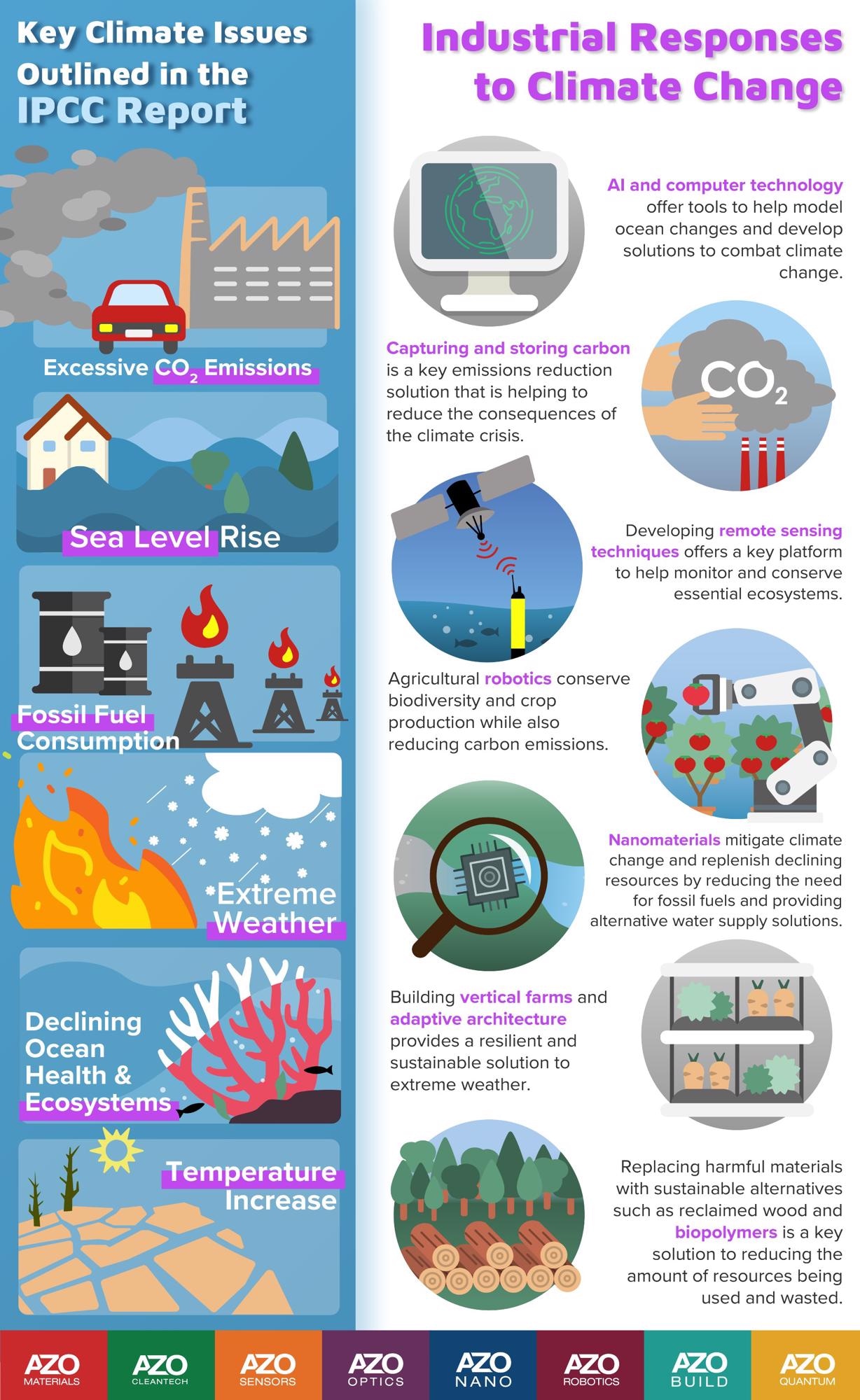
The sensors industry is no stranger to monitoring changes in the global environment. As the need for adaptable solutions deepens, tracking the behavior of climate change indicators will be a vital asset.
The Intergovernmental Panel on Climate Change (IPCC) is a United Nations body that releases regular reports on climate change, bringing together a wealth of scientific data. A continued global temperature rise of 1.5 ºC triggered the publishing of a special document in 2018, offering an in-depth look into the adverse effects of this change on the climate system and making the need for adaptive solutions abundantly clear.
Throughout the Summary for Policymakers, carbon emissions are emphasized as a critical component of climate change. The IPCC warns that only a drive for technologies reducing their effects on the environment can negate the significant consequences of these pollutants. "Future climate-related risks would be reduced by the upscaling and acceleration of far-reaching, multilevel and cross-sectoral climate mitigation and by both incremental and transformational adaptation."
What is IPCC's Sixth Assessment Report?
Video Credit: Intergovernmental Panel on Climate Change (IPCC)/YouTube.com
Following this 2018 special report, the IPCC has released its first major scientific review of climate change since 2013. Titled The 2021 Physical Science Basis Summary for Policymakers, crucial insights on declining ecosystems, an estimated 2 m sea-level rise by the end of the century, and more frequent extreme weather are just a few of the expected consequences if current strategies are not amended. Within these revelations, the impact of anthropogenic activities has not been ignored.
It is unequivocal that human influence has warmed the atmosphere, ocean and land. Widespread and rapid changes in the atmosphere, ocean, cryosphere and biosphere have occurred.
Climate Change 2021: Physical Science Basis Summary for Policymakers, IPCC, 2021
No aspect of the Earth's climate and ecosystem has avoided human action, sometimes undergoing irreversible changes. As such, the need for adaption and innovation in industries like the sensors sector is vital to accelerate climate mitigation.
An Industrial Response to Climate Change
AZoSensors is taking a deeper look into how the sensors industry is responding to issues highlighted by the IPCC's Summary for Policymakers and 2021 Physical Science Basis climate change reports. By curating a collection of articles exploring a specific advancement or adaption, including reference to market relevance and research, insights into how this technology is tackling the ongoing climate crisis are uncovered.
The sector-specific approach taken within each article enables detailed exploration of climate change innovations. In doing so, limitations, future directions, as well as the necessity of further research and development in combatting climate change effects can be discussed.

Image Credit: Sara Lopez Segura
AZoSensor's IPCC Editorial Series looks at how monitoring changes to the Earth's different ecosystems can aid the design of future, adaptive strategies. In their reports, the IPCC has highlighted the importance of climate change indicators. Even the most minor elements of our oceans can signal the most significant global ecosystem changes. Whether it is utilizing biogeochemical sensors to monitor pH and oxygen levels or satellite surveillance to observe the relationship between phytoplankton and ocean color, understanding how an unstable carbon cycle impacts ocean health is a valuable asset in mitigating climate change.
Modeling the future state of our Earth is only possible by obtaining accurate data about how ecosystems are affected by anthropogenic activities worldwide. Innovations in sensor technology are a significant contributor to overcoming this issue, aiding the design of effective, impactful solutions. With the help ofEnMAP's hyperspectral sensor mitigating climate change might be possible after all.
References and Further Reading
IPCC, (2018) Summary for Policymakers. In: Global Warming of 1.5°C. An IPCC Special Report on the impacts of global warming of 1.5°C above pre-industrial levels and related global greenhouse gas emission pathways, in the context of strengthening the global response to the threat of climate change, sustainable development, and efforts to eradicate poverty [Masson-Delmotte, V., P. Zhai, H.-O. Pörtner, D. Roberts, J. Skea, P.R. Shukla, A. Pirani, W. Moufouma-Okia, C. Péan, R. Pidcock, S. Connors, J.B.R. Matthews, Y. Chen, X. Zhou, M.I. Gomis, E. Lonnoy, T. Maycock, M. Tignor, and T. Waterfield (eds.)]. World Meteorological Organization, Geneva, Switzerland. In Press
IPCC, (2021) Summary for Policymakers. In: Climate Change 2021: The Physical Science Basis. Contribution of Working Group I to the Sixth Assessment Report of the Intergovernmental Panel on Climate Change [Masson-Delmotte, V., P. Zhai, A. Pirani, S. L. Connors, C. Péan, S. Berger, N. Caud, Y. Chen, L. Goldfarb, M. I. Gomis, M. Huang, K. Leitzell, E. Lonnoy, J.B.R. Matthews, T. K. Maycock, T. Waterfield, O. Yelekçi, R. Yu and B. Zhou (eds.)]. Cambridge University Press. In Press